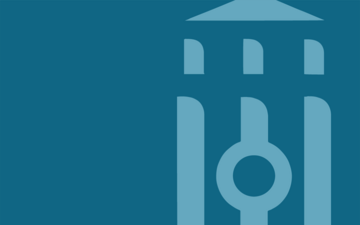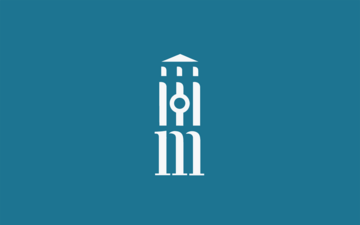Q&A with David Schoem, author of College Knowledge for the Jewish Student: 101 Tips

It is critical for the individual Jewish student who enters college to come intellectually, emotionally, and spiritually prepared for the academic and social experience that awaits. College is a qualitatively different experience than high school, and students' expectations need to be set appropriately. The transition from high school to college is so significant that it can be difficult for most students without some preparation.
College Knowledge for the Jewish Student: 101 Tips is the perfect guide for students heading off to college with high expectations for learning, academic success, personal growth, and independence. Through lively tips and compelling student stories about life at college, it offers thoughtful, practical information for every Jewish student who wants to make a successful transition.
David Schoem is Faculty Director, Michigan Community Scholars Program, University of Michigan. He is the author of College Knowledge: 101 Tips and Intergroup Dialogue: Deliberative Democracy in School, College, Community, and Workplace.
The University of Michigan Press: Why did you decide to write this book? What problem or issue did you want to address?
David Schoem: High school students and their families spend so much time, effort and resources on the business of “getting in” to college that they too often forget to focus on how to make the most of the college experience. I meet so many students in their senior year of college who only first realize and regret what they “should have and could have” accomplished and experienced in their first years of college. This book is intended to prepare students from “day one” for the academic, personal, social, and civic aspects of a college education in order to help make the college experience as meaningful and rewarding as possible.
UMP: When should students first start thinking about their college experience?
DS: Students, of course, should be sure they are on the academic college-bound course track as early as elementary school and certainly in middle school and high school. Many schools begin college test preparation in 9th or 10th grade and the pressure only builds from there. Beyond the focus on testing, however, comes the more important thinking about what kind of personal aspirations, intellectual interests, and professional opportunities a student can imagine for him/herself. Whatever college a student attends, there are opportunities to meet outstanding faculty, attend small classes, get excited about ideas and concepts, meet interesting people, and get engaged in co-curricular and civic activities. Importantly, each individual should think about what kind of person they are today and want to be in the future, what values they hold and what they find most fulfilling in life, and what kinds of relationships are important to them.
UMP: Why write a guide specifically for Jewish students? What are some issues unique to Jewish students that they need to consider?
DS: Although in many respects “college is college is college” regardless of one’s background, every student’s social background brings some particular issues that he/she must address. For Jewish students, this distinction faces them in the first days of the academic year when the Jewish New Year and High Holy Days often conflict with college classes and special social activities and the student needs to negotiate religion, tradition, and family with the academic demands. Also, like all college students, Jewish students are eager to extend their comfort zone and engage with people, ideas, and study of all places and backgrounds. As members of a minority group, however, at college they face the challenge of both maintaining their Jewish identity and becoming fully engaged in the American and global society. Jewish students are interested in exploring their Jewish selves and learning how to balance their Jewish friendships with other diverse friendships and also how to take full advantage of everything college has to offer while still maintaining their Jewish networks, identities, and religious/cultural/ethnic traditions.
UMP: What are a few of the top things students should think about in the first days of college?
DS: Students should be confident that their college knows that they have the ability to be successful academically. They should intentionally plan to expand their comfort zone, moving beyond their high school patterns in terms of course selection and intellectual exploration, friends and social networks, and breadth of co-curricular interests. They should take seriously the opportunity to explore themselves as young adults. Students should right away make a point of meeting their professors, asking questions, and sharpening their study skills and time management practices. All of my students advise new students to live balanced lives and not to believe the media glorification of heavy partying in the first weeks of college or even a study hard/party hard approach to college.
UMP: How can students apply the principles of tikkun olam to the college experience?
DS: There are numerous opportunities to get involved in civic life, take responsibility for strengthening our democratic society, work for the betterment of all people around the world and address the excessive gaps between the wealthy and impoverished. Community service opportunities abound as do student groups working for sustainable solutions to issues of energy, food, water and our natural resources. Some students participate in intergroup dialogues to engage peers from different social identity groups; others choose to get involved in policy or governance; still others prefer working one-on-one as tutors and aides to seniors in assisted living. Our society needs well-educated, engaged citizens to make a difference in the world. Not only does the work of tikkun olam benefit the world around us but research indicates that students who are engaged in civic life are more like to have healthy and successful college experiences.
To read more about College Knowledge for the Jewish Student: 101 Tips by David Schoem, visit The University of Michigan Press at /isbn/9780472034307.
You can also find more about College Knowledge for the Jewish Student: 101 Tips on Professor Schoem’s website www.collegeknowledgetips.com.
For more University of Michigan Press podcasts, visit www.press.umich.edu/podcasts/.



